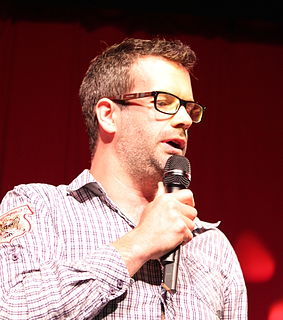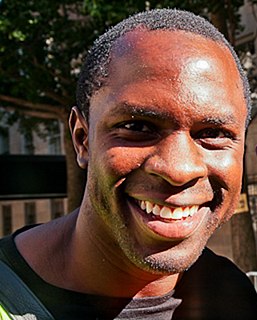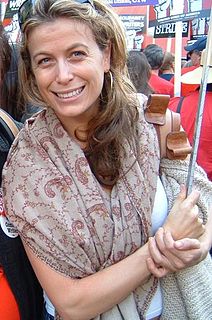A Quote by Marcus Brigstocke
I have a very good memory for scripts. I can watch a show I like once, then remember about 90% of the script. But ask me who was in it, and I wouldn't have a clue.
Related Quotes
It takes a very long time to read a script. I'll look at a script, but there are so many scripts. I remember once being at the dentist, and the guy was doing my teeth and telling me about the screenplay he'd written and he said, "Will you read it?" And I said "Oh...okay." And it turns out that it was about a dentist!
A good script is like a work of art in itself. I've read hundreds of scripts, and good ones are very rare. If the writer has something to say, and a voice, and a plot that matches character, and an emotional trajectory that works, then I'd be an idiot to fool around with it. It's just that few scripts ever are like that.
I read the script for 'Somnia' when I was filming 'Oculus,' and I remember calling my manager going, 'I really need to do this movie,' and he's like, 'How about you finish this one first and then you see it?' I was like, 'I don't need to. I don't need to. You need to read this. I need to do this movie. The script is very good.'
I've often tried to describe how memory works. I've suggested this to students, and told them to close their eyes and try to remember what I look like. Then I ask them if they remember what I look like. But when you open your eyes you will be surprised how different what you thought I looked like is to what I actually look like. Because the imagination is a different raw material from actual vision. Memory is very different from the thing itself.
I wonder if they realize how much I notice about them They probably haven't a clue because I never look at them or show the slightest interest. But I'm very aware of everything. I remember seeing an old film once where a father says to his son: "Son when your mouth's open you're not learning anything." If that's true then I'm well on the way to becoming the world's wisest woman.
If you put someone in a room with no script to direct, they're just going to sit there. Writing scripts is the execution for a show. Then the director takes that and hires people. It's like trying to build a house without any bricks. You need the script. I could build the house, but I have to know how.
One often feels as though something had happened before, I remember. It comes quite close to you and stands there and you know it was just this way once before, exactly so; for an instant you almost know how it must go on, but then it disappears as you try to lay hold of it like smoke or a dead memory. "We could never remember, Isabelle," I say. "It's like the rain. That has also become one, out of two gasses, oxygen and hydrogen, which no longer remember they were once gasses. Now they are only rain and have no memory of an earlier time.
To be honest I don't watch the show, I don't watch any TV, so I have no idea what the show is about. I go to Hawaii, shot my scenes and script and 'Ciao.' I'm not a 'Lost' fanatic and it's a disappointment for thousands people and friends that are dying to know what will happen. They know more than me.
Any good movie or script usually, if they're doing their job, gives the highest platform possible for an actor to leap off of, and that script was very high up there. It was a very smart, tight script. There was a lot of improv, as well, once we got to the set, but a lot of the original script was also in there.
Lego was our fourth film, because we did two Cloudys, so yeah there's a little bit of shorthand that's involved and then you can anticipate things- because for me it's like, I get a script for a movie and I go, "Wow that's a pretty good script", then you sign on and a couple months later they show you the first cut and you're like, "Whoa, how did that happen?"
































